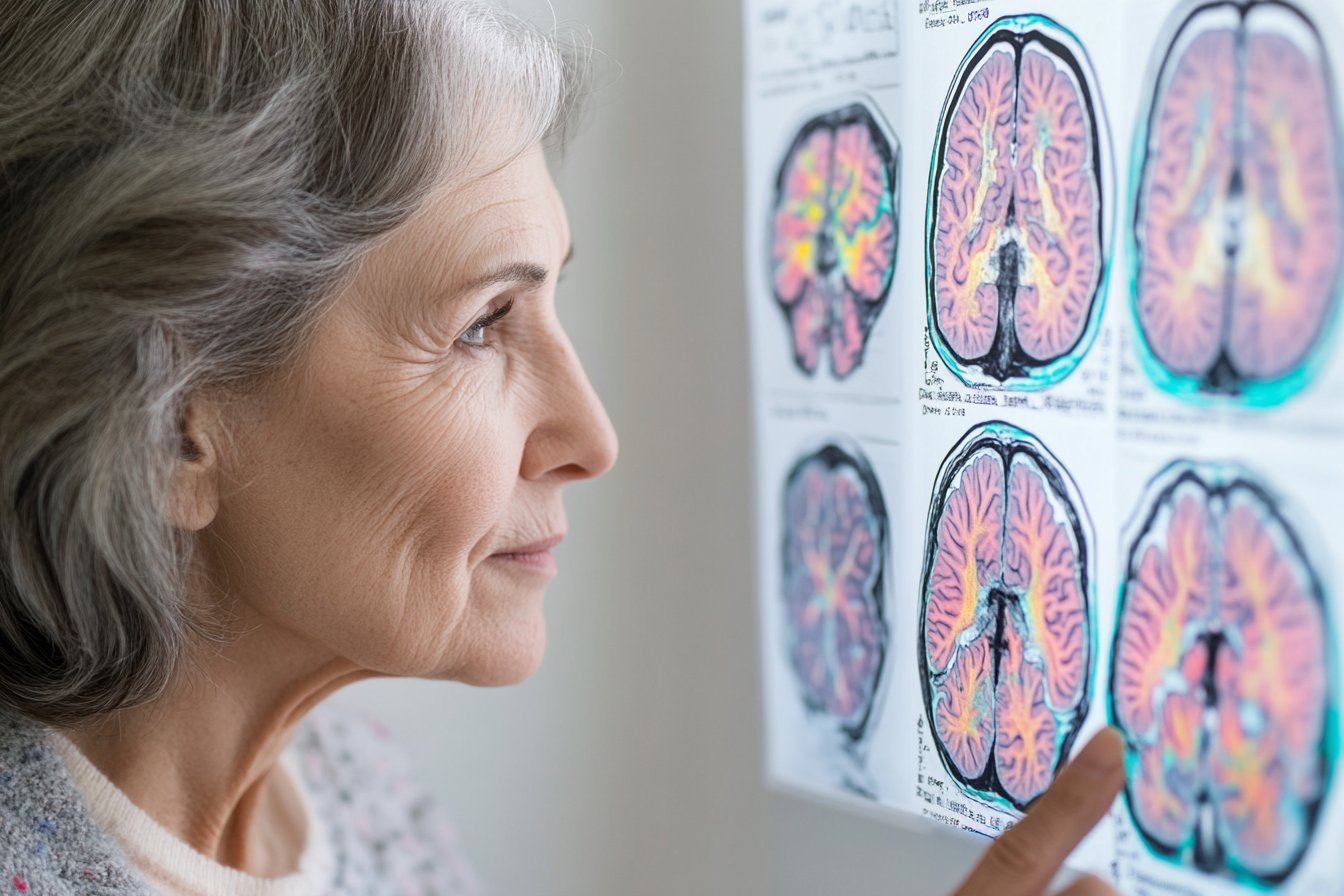From Challenges to Comfort: Palliative Care for Dementia Patients
Practical ways palliative care makes life more comfortable for dementia patients, addressing their physical and emotional needs with care.
Learn about the factors influencing cognitive health, from initial symptoms to actionable strategies for enhancing daily life.

Cognitive impairment—what does that even mean in real life? It’s not just losing your keys or forgetting why you walked into a room (though, sure, we’ve all been there). For some, it’s a fleeting moment of confusion, a name or word that dances just out of reach. For others, it’s more unsettling: a once-familiar face that feels like a stranger or an entire day slipping by unnoticed.
This isn’t the absentmindedness we laugh off or blame on a busy schedule. It’s something deeper, a shift in how the mind makes sense of the world. And the causes? They’re as layered as life itself—genes, habits, even the way we handle stress on an ordinary Tuesday.
But here’s a thought: it’s not just about what’s lost. Maybe it’s also about what remains. Understanding cognitive impairment isn’t just about diagnosis or decline; it’s about finding ways to care for the mind while honoring the parts of ourselves that stay sharp, curious, and full of life. These are the questions worth sitting with, not out of fear, but because they help us see the whole picture—with honesty and hope.

At its core, cognitive impairment includes difficulties with memory, attention, reasoning, and problem-solving. Individuals may struggle to focus on tasks, recall recent events, or even follow simple instructions. This can lead to frustration and a sense of helplessness, not just for the individual but for their friends and family as well.
Researchers suggest that cognitive impairment can be temporary or progressive, becoming a more pronounced barrier to daily activities over time. It introduces a sense of unease into the mind, invoking thoughts of unbidden memories slipping through our fingers like sand in an hourglass. The emotional toll can be significant, as individuals grapple with the loss of independence and the shifting dynamics within their relationships. Caregivers often find themselves navigating a complex landscape of emotions, balancing compassion with the challenges of providing support.
Here’s a checklist to assess whether someone older may be experiencing cognitive impairment. It is designed to focus on noticeable changes in memory, behavior, and daily functioning, while emphasizing compassion and respect for the individual’s dignity. This checklist is not diagnostic but can serve as a starting point for identifying concerns that warrant professional evaluation.

The prevalence of cognitive impairment is a pressing concern in modern society, particularly among the aging population. Estimates suggest that approximately 15-20% of older adults experience some form of cognitive decline. These figures prompt us to scrutinize not only the biological basis but also the socio-cultural implications of living with cognitive impairment.
Globally, the impact of cognitive impairment is larger than any one individual experience and steps into the larger societal framework, affecting healthcare systems and family structures alike. As the world grapples with an aging demographic, awareness and understanding become imperative. That awareness may lead to better support systems and interventions, fostering a culture of empathy and adaptation. Furthermore, initiatives aimed at enhancing cognitive health through lifestyle changes—such as diet, exercise, and mental stimulation—are gaining traction. Communities are increasingly recognizing the importance of creating environments that support cognitive wellness, from social engagement programs to accessible healthcare resources, thereby empowering individuals to maintain their cognitive abilities for as long as possible.
Cognitive impairment arises from an intricate combination of factors, ranging from genetic predispositions to environmental stimuli. It is essential to navigate this area carefully, understanding how each piece contributes to the bigger picture.
Ultimately, identifying the root causes enables us to formulate strategies and interventions that can alleviate the impact of cognitive decline. In our ongoing search for meaning amid chaos, each clue we look into takes us a step closer to understanding our own cognitive processes and those of our loved ones.

The genetic landscape of cognitive impairment is complex. Some individuals may inherit genes that increase their susceptibility to conditions such as Alzheimer’s disease or other forms of dementia. These can act as silent architects of cognitive decline, laying the groundwork for deterioration long before symptoms begin to surface.
Studies show that specific genetic markers, such as the APOE ε4 allele, are linked to a higher risk of developing Alzheimer’s disease. Thus, understanding these genetic components can not only help predict potential cognitive issues but also encourage preventative measures that can be adopted early in life. Furthermore, ongoing research into the epigenetic factors—how genes are expressed rather than just inherited—opens new avenues for intervention. This means that even if one carries a genetic predisposition, lifestyle choices and environmental factors can potentially mitigate risks, highlighting the dynamic interplay between our biology and our choices.
Environmental influences also cast a long shadow over cognitive health. Numerous studies convey how air pollution, prolonged exposure to toxic substances, and even receiving vaccines for preventable diseases can mediate cognitive decline. The world outside our windows can infiltrate our minds in ways we hardly comprehend.
This underscores the importance of a healthy environment—a responsibility that lies not just with individuals but extends to communities and policymakers as well. The air we breathe, the water we drink, and the ground we walk on collectively contribute to the tapestry of our cognitive wellness. Additionally, the role of social environments cannot be overlooked; living in a community that provides opportunities for social interaction and mental stimulation can significantly enhance your cognitive resilience. Urban planning that prioritizes healthy green outdoor spaces, community centers, and accessible healthcare can create an ecosystem that nurtures cognitive vitality and well-being.

Lifestyle choices—those seemingly mundane decisions we make every day—play a significant role in cognitive health. Diet, exercise, and social interactions are pivotal in either safeguarding or eroding our cognitive functions. A balanced diet rich in antioxidants and omega-3 fatty acids, such as the Mediterranean Diet, regular physical activity, and social engagement are powerful and tested ways to combat cognitive decline.
Consider the act of engaging in a routine that includes regular exercise and a diet filled with leafy greens as a simple way to nurture the mind. The synergy created between these factors (and many others) serves as a protective barrier, a fortress against the looming shadow of cognitive impairment. Moreover, mental exercises—such as puzzles, reading, or learning new skills—can act as cognitive workouts, strengthening neural connections and enhancing brain plasticity. By fostering a lifestyle that embraces both physical and mental challenges, individuals can cultivate a real defense against the cognitive challenges that may and often do arise with age.
Recognizing the symptoms of cognitive impairment can be a harrowing journey for both the individual and their loved ones. Often, these symptoms slip in unnoticed, becoming a normal part of daily life until they become thoroughly interlaced with one’s identity.
It’s imperative to remain vigilant and sensitive to the signs. Being aware of the multifaceted nature of symptoms allows for early detection and intervention, potentially halting the progression or at least alleviating its impact. What may start as being mildly forgetful could result in falling victim to a scam, getting lost at night, or worse.
You might not expect it, but physical changes are often the earliest clues to cognitive impairment. A task as simple as buttoning a shirt might take longer than usual, or there’s a sudden clumsiness in reaching for a coffee cup. These small struggles—easy to dismiss—can be the body’s quiet way of signaling changes in the brain. It’s all connected, though we don’t always see it that way at first.
Fatigue can creep in too, that bone-deep weariness that makes every movement feel just a bit heavier. Responses might slow—not only in your conversation but in little things, like taking an extra moment to move out of someone’s way. These aren’t isolated incidents; they’re signs that the brain and body aren’t working as seamlessly as they once did.
It takes courage to notice these changes, let alone name them. But paying attention to what your body is telling you is a form of care in itself. Maybe it starts with a quiet moment of honesty—admitting to yourself that something feels off. Then, perhaps, you share that observation with a friend or loved one. That first conversation? It’s hard, sure. But it’s also the beginning of understanding, connection, and action.

Emotional symptoms, too, warrant attention. Depression, anxiety, and frustration are common companions of cognitive impairment. As one grapples with the changes happening internally, emotional responses can vary wildly, creating a tumultuous landscape of feelings that can overwhelm even the most steadfast of hearts.
It is essential to foster an environment where these emotions can be shared and understood without fear of judgment. The recognition and validation of these feelings play a crucial role in the overall health of the individual suffering from cognitive impairment.
Cognitive symptoms constitute the most troubling aspect of cognitive impairment. These can include difficulties with memory recall, problem-solving, and decision-making. Simple tasks that once felt instinctual may turn into daunting challenges, casting shadows over daily life.
Addressing and recognizing these symptoms can act as a beacon, guiding both the individual and their support network toward potential strategies for coping. Open communication, patience, and the willingness to seek assistance are essential bearers of hope in these trying times.
Cognitive impairment does not present itself as a monolith. Rather, it embodies various forms, each with its own unique features and implications. Understanding these distinctions can pave the way for tailored interventions and support mechanisms.
The classifications of cognitive impairment remind us that each individual's experience is both personal and specific. It encourages a focus on the finer details, leading to interventions that cater to individual needs and circumstances.
Mild cognitive impairment (MCI) refers to early changes in memory or thinking skills that go beyond normal aging but don’t yet interfere significantly with daily life. Someone with MCI might misplace items more often, forget appointments, or struggle to keep track of conversations. These lapses are noticeable but typically don’t prevent the person from managing their day-to-day responsibilities.
Early detection is key. Tools like the Mini-Mental State Examination (MMSE), widely used by doctors, can help assess cognitive changes. You can also try simple at-home tests, like asking your loved one to recall a short list of words or draw a clock showing a specific time. These activities provide insights into memory, focus, and problem-solving.
By identifying MCI early, you can take steps to slow its progression. Encourage regular exercise, a healthy diet, and activities that stimulate the brain—such as puzzles, reading, or learning new skills. Discuss concerns with a healthcare provider, who can recommend further evaluations or interventions.
Severe cognitive impairment marks a significant decline in mental function, often accompanied by difficulty with basic tasks like dressing, eating, or recognizing loved ones. At this stage, individuals usually require substantial assistance from caregivers.
Caregiving in this context is a complex and emotional experience. Simple strategies, like playing familiar music or looking through old photo albums, can help maintain a sense of connection. For caregivers, self-care is essential—leaning on support groups, respite care, or friends for help can make a difference.
Professionals often recommend comprehensive care plans that combine emotional, medical, and practical support. These include memory care programs, physical therapy, and structured routines to reduce confusion and promote comfort. While this stage is challenging, patience, understanding, and professional guidance can ease the journey for everyone involved.

To tackle cognitive impairment effectively, accurate diagnosis is of the utmost importance. A variety of diagnostic procedures can illuminate the underlying causes and help determine the most appropriate course of action.
Each diagnostic step transforms a nebulous experience into something tangible, allowing both the individual and healthcare providers to understand the pathways onward. The journey from uncertainty to clarity can be arduous but is essential for meaningful interventions.
Medical history is the starting point for understanding cognitive impairment, and it’s more than just a list of past illnesses. Has there been a history of strokes or a head injury years ago? Are there medications—prescription or over-the-counter—that might cloud memory or thinking? What about a family history of Alzheimer’s or dementia? These details can provide crucial clues, but they’re not always obvious without digging a little deeper.
At home, you can take an active role too. Tools like the Mini-Mental State Examination (MMSE), commonly used by doctors, offer a way to check for potential red flags. It’s a quick test—questions like naming objects in a room or recalling a short list of words. Even simpler tasks, like drawing a clock showing a specific time, can be incredibly telling. I once asked my uncle to try the clock test after noticing he’d been struggling to keep track of dates. The result was enough to convince him (and me) to talk to his doctor.
These observations don’t replace professional diagnosis, but they’re a way to start the conversation. When you bring notes or examples from home—like a moment when they forgot their address or confused names—it helps doctors connect the dots more effectively. Sometimes, what feels like a small observation at home can open the door to understanding the bigger picture.
Neurological examinations are pivotal components of the diagnostic process. These assessments often involve imaging techniques and electric response tests (like EEG), revealing the complex workings of the brain. They help to identify any structural abnormalities or functional disruptions that may contribute to cognitive impairment.
In illuminating the brain’s inner workings, these examinations provide invaluable insights, transforming the intangible essence of thought and memory into something more scientifically digestible. Each test serves not just as an evaluation of cognitive health, but as a bridge that connects us to the marvels of our neurological systems.

Cognitive testing comprises a series of assessments designed to measure specific cognitive abilities such as memory, language, attention, and problem-solving skills. These evaluations enable professionals to gauge the extent of cognitive impairment accurately and tailor future strategies accordingly.
Through cognitive testing, individuals embark on a journey of self-discovery. Engaging with these exercises provides not just information but also an opportunity for introspection. The outcome may evoke challenges, but it also opens doors to support and care that can transform futures.
In understanding cognitive impairment, we grasp not merely a clinical condition but the experience of living in a world infused with complexity and nuance. By highlighting causes, symptoms, types, and diagnostic methods, we begin to construct a narrative that is individual yet connected, informed yet personal. This essential understanding invites advocacy, empathy, and action as we confront the challenges of cognitive impairment head-on.